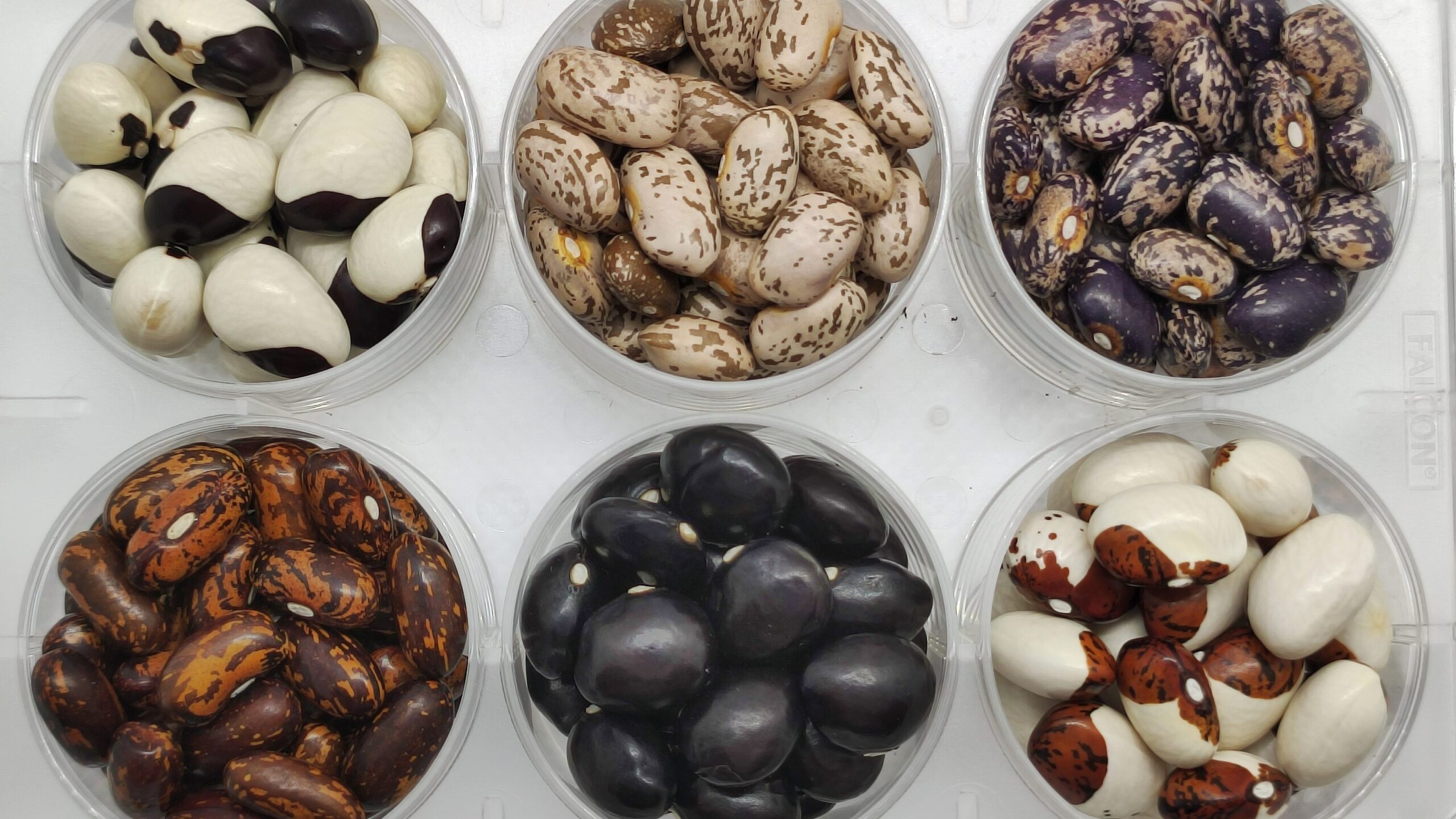The INCREASE project helps protect plant genetic resources by involving citizens in growing and tracking different types of beans, which boosts biodiversity and supports sustainable farming.
Citizen Science is the practice where members of the general public participate in scientific research activities, working alongside professional scientists to collect data, analyze results, and contribute to the scientific process. This collaboration enhances the scale and scope of research across various fields such as environmental monitoring, biodiversity, and astronomy, while also promoting science literacy and community engagement. By involving non-scientists, citizen science projects leverage the efforts of volunteers to address real-world problems and advance scientific knowledge
The European Union Prize for Citizen Science is an annual award established in 2023 to recognize outstanding achievements in citizen science. This prize is funded under Horizon Europe and managed by the European Research Executive Agency (REA) as part of the IMPETUS project. It aims to highlight initiatives that involve citizens in scientific research and innovation, fostering a pluralistic, inclusive, and sustainable society in Europe. This year, the European Union Prize for Citizen Science goes to Kerstin Neumann and Roberto Papa for their project ‘INCREASE’, which engages citizens in growing and documenting diverse bean varieties to promote decentralized conservation and enhance agrobiodiversity. In our interview with the artists, we learn more about the use of AI and deep learning to analyze data collected by citizens and their efforts to ensure gender diversity and social inclusion in the project.

What are the main goals of the INCREASE project, and why are they important for preserving plant diversity and growing beans?
Kerstin Neumann & Roberto Papa: The Citizen Science Experiment is part of the broader INCREASE project, which aims to characterize and conserve the genetic resources of the four most representative legume crops of the Italian and European agricultural and food traditions: chickpea, lentil, lupine and common bean.
One of the most innovative features of the project is the development of the concept of the “decentralized conservation of plant genetic resources (DCPGR)”. The idea behind the DCPGR is to make available plant genetic resources (PGR), preserved in gene banks and mostly accessible to expert users also to all stakeholders, farmers and all citizens. Citizens are then involved both in conservation and evaluation of the PGR contributing to the collection of data helping to understand the adaptation of common bean varieties in different environments and assess their potential interest as food products.
Indeed, within the INCREASE project, a specific Citizen Science Experiment (CSE) was specifically developed to test the innovative concept of decentralized conservation of plant genetic resources (PGR) that will facilitate the use of PGR and improve agrobiodiversity promoting the sustainable use of PGR by greatly enlarging their access to all citizens and stakeholders.
INCREASE’s purposes reflect the urgency of countering the negative consequences of climate change. In this sense, the project invites us to reconsider our role in antithesis to the idea of resource exploitation. This highlights the relevance of the INCREASE project not only from a scientific perspective, but also from a cultural, social, and ethical one. INCREASE aims to rethink the model of genetic resource conservation and their use and the role of citizens and not just consumers. In this perspective, the project represents a concrete effort to promote the sustainable use of PGR and preserve agricultural heritage while promoting greater awareness of agrobiodiversity and genetic resources conservation.
The main objective of INCREASE is to mitigate the effects of the climate crisis by increasing agrobiodiversity and promoting sustainable agriculture. Another objective is the genetic and phenotypic characterisation of the genetic resources of more than 1,000 bean PGR lines. Through a participatory scientific approach, these plants will be grown in different European environments to determine their characteristics and adaptability. In addition, a new decentralised conservation system will be tested to support germplasm multiplication and self-production, including in urban environments. Finally, awareness of environmental sustainability and the benefits of a healthy diet will be promoted by encouraging the consumption and cultivation of legumes.
How do you involve citizens in the decentralized conservation system, and what roles do they play in the collection and analysis of data?
Kerstin Neumann & Roberto Papa: When we talk about decentralized conservation, we are referring to the fact that these genetic resources are not exclusively conserved in Gene Banks – which is still essential – but every citizen and every territorial reality can become a custodian of these precious resources.
This conservation system does not compete with the Gene Banks in which plant genetic resources (PGR) are conserved in a highly standardized manner; on the contrary, it aims to become a complementary system to enhance the value of PGRs by promoting their sustainable use and social and environmental role of agrobiodiversity, which is essential for the resilience of ecosystems, especially at the historical moment when they are threatened by the climate crisis.
The participatory approach has enabled the large-scale decentralized conservation model to be put into practice and tested, creating a virtual community spread throughout Europe. The Citizen Science Experiment is now in its fourth round this year and has received a large number of voluntary participations. A strength of this open, distributive, participatory system is its inclusiveness: accessibility to participation and simplicity of application.
Each citizen receives five different varieties of beans, plus one variety that serves as a control for everyone. These beans come from more than 1,000 varieties found in different countries worldwide. Participants simply need to sow the beans – whether in a plot, a garden, or even pots on their balcony – and record their growth and flowering using the cell phone application (CSA App).
By documenting phenotypic characteristics (those that can be observed externally), they will collect valuable data that contributes to scientific research and helps us understand how bean varieties adapt to different environments and conditions.
Active citizen involvement in the use and consumption of these valuable resources promotes biodiversity, agrobiodiversity and sustainable agriculture, while creating greater awareness of nutrition and environmental sustainability issues.
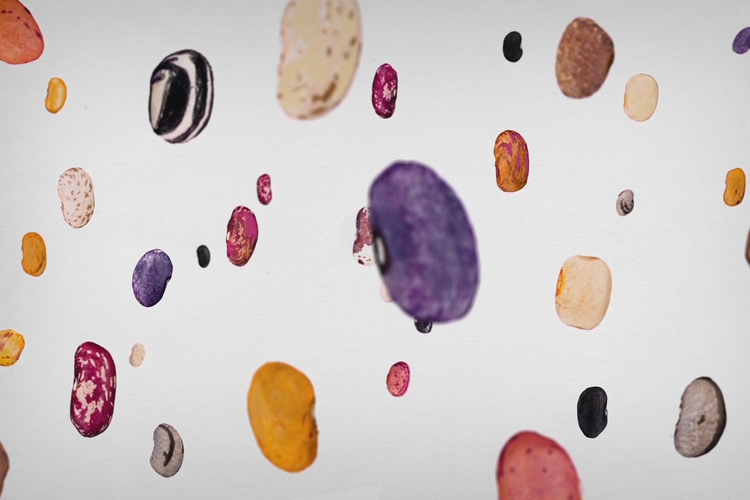
How do artificial intelligence and deep learning improve the analysis of the data collected by citizens?
Kerstin Neumann & Roberto Papa: The CSE explores thousands of different beans PGR in an unprecedented number of different environments. Sequencing DNA data revealed different well-characterized genetic groups for which the CSE generates phenotypic data as alphanumeric and image information. The huge pool of stored images from the phenotyping part of the App is now the base for detailed image analysis using artificial intelligence and deep learning involving citizens to develop image recognition and enabling to identify and correct potential errors during the decentralized conservation steps. The first attempt with leaf shape trait looks promising, and we aim to identify certain traits directly from images not scored and that might be scored not correctly. Currently, we are focusing on AI applications to identify the (morphological) seed authenticity of harvested seeds – this can further support to identify a mix-up and therefore help in cleaning data before analysis.
What measures are in place to protect the privacy and security of the data provided by citizens?
Kerstin Neumann & Roberto Papa: We have organizational and technical processes and procedures in place to protect the personal information. We continuously raised the bar on CSA privacy safeguards with services and features that INCREASE privacy controls, including advanced access, encryption, and logging features. We make it easy to encrypt data in transit and at rest using keys managed by Amazon Web Services (AWS).
Increase CSA is based on AWS services and on iOS and Android security guidelines (our app is approved by both stores before publications) that achieved numerous internationally-recognized certifications and
accreditations, demonstrating compliance with rigorous international standards, such as ISO 27017 for cloud security, ISO 27701 for privacy information management, and ISO 27018 for cloud privacy. The General Data Protection Regulation (GDPR) and UK GDPR require us to explain the valid legal bases we rely on in order to process your personal information.
We may process the information if they have given us permission to use the personal information for a specific purpose, and they can withdraw their consent at any time. We do not receive any information from third parties. We do not use customer data or derive information from it for marketing or advertising purposes. We do not process sensitive personal information.
We do not collect data from citizens under 18 years old. If we find out that we have collected personal information from users under 18, we deactivate the account and promptly delete the data.
How does the project ensure gender diversity and social inclusion from partner selection to citizen involvement?
Kerstin Neumann & Roberto Papa: Gender diversity and social inclusion are promoted in every aspect in our project. At the level of the Partners involved, all measures are taken to promote equal opportunities between men and women in an inclusive environment that promotes respect and mutual support. Gender balance is ensured at all levels of personnel assigned to different tasks, including at the supervisory and management level.
Citizens of various backgrounds, all different age groups, and gender participate in our CSE, as we can see from our voluntary questionnaires during the rounds. Social and gender inclusion of citizens is at the base of Citizen Science. There is no selection to participate, and the simplicity of the project’s application makes participation accessible to everyone; this also allowed us to achieve a wide age range of citizens. All activities proposed to citizens are done in native languages (the languages of the App, questionnaire, video and tutorials) and promotion is focusing on regional and national press and media. The only indirect selection criteria is to be able to handle the App, which risks the exclusion of the eldest – however we have seen many examples where the grandparents get help from their digital native grandchildren, which is a nice example that the CSE can bring together generations.
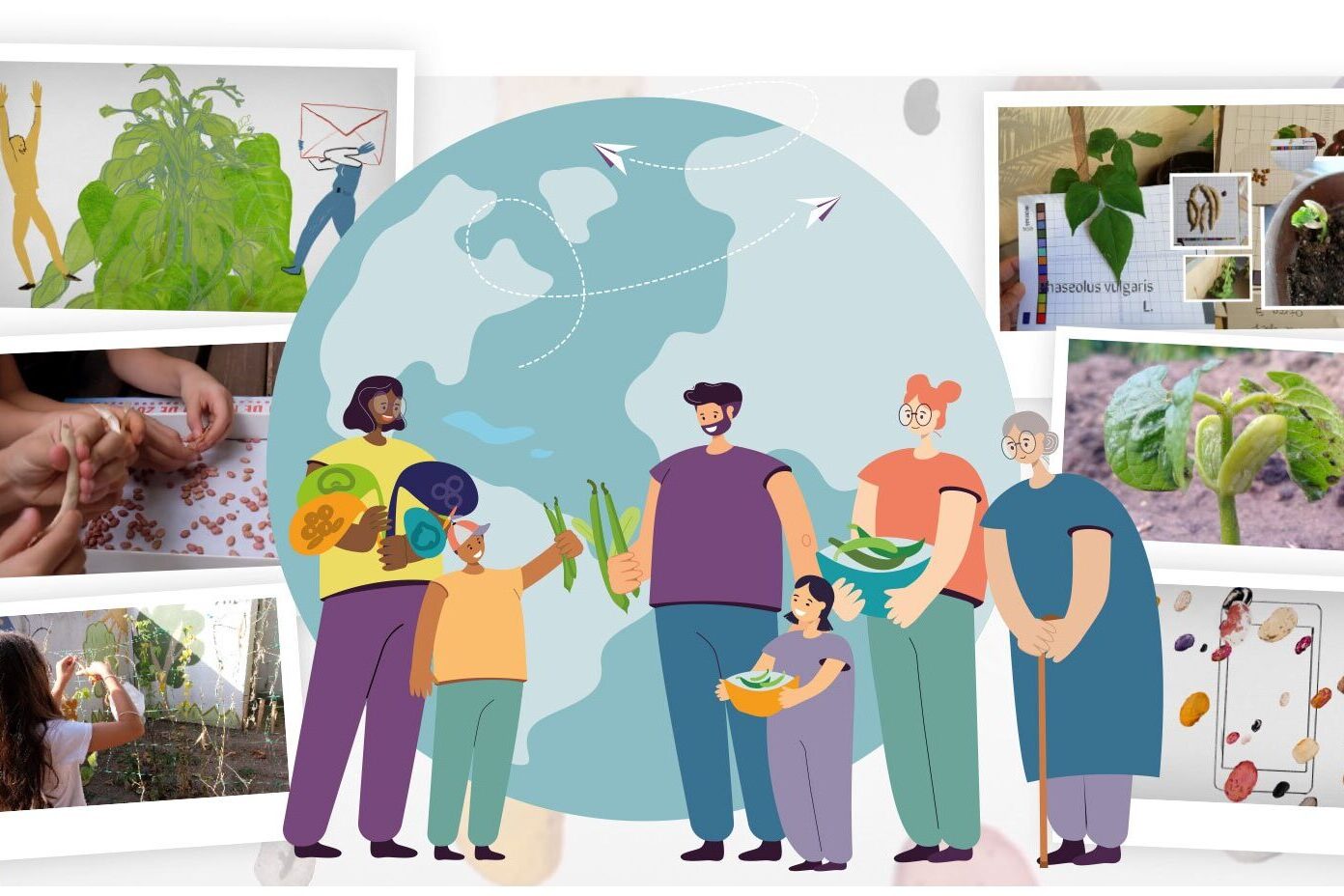
How do you see the role of citizen science changing in the future for preserving plant diversity and sustainable farming?
Kerstin Neumann & Roberto Papa: INCREASE aims to rethink the model of genetic resource conservation and the role of citizens (not only consumers!). The project represents a concrete effort to preserve agricultural heritage while promoting greater awareness of the importance of plant genetic resources and biodiversity.
Indeed, the results of the INCREASE CSE demonstrate that citizen science and participatory approaches are the prerequisites to diversifying agriculture towards sustainability with the opportunity to develop sustainable diets for all under a main biodiversity and climate crisis.
Our project shows the feasibility of decentralized conservation of genetic resources based on a participatory approach. This not only supports a new perspective on PGR conservation, but also indicates that decentralization will be able to promote and facilitate the sustainable use of PGR with the effect of promoting the diversification of agriculture. An additional aspect is the promotion of social and urban agriculture and promoting greater awareness of the importance of plant genetic resources and encouraging self-sustaining practices even in urban settings, the project contributes to the well-being of local communities and the fight against climate change.
The experiential aspect demonstrates the potential of Citizen Science not only as a contribution to science, but also as becoming awareness of sustainability. The active involvement of citizens contributes to the creation of a more conscious and responsible culture towards the environment.
Indeed, the INCREASE project is committed to raising awareness of issues related to nutrition and environmental sustainability, emphasizing the importance of including legumes within our diet, through events featuring experts in the fields of nutrition and agronomy.
This awareness is a stimulus for new healthy eating habits. In addition, influencing consumption habits means encouraging a more sustainable lifestyle approach, including encouraging self-production practices even in urban settings. Greater power in crop management means greater food security, avoiding total dependence on industrialized foods.
You can find more information about the European Union Prize for Citizen Science here.
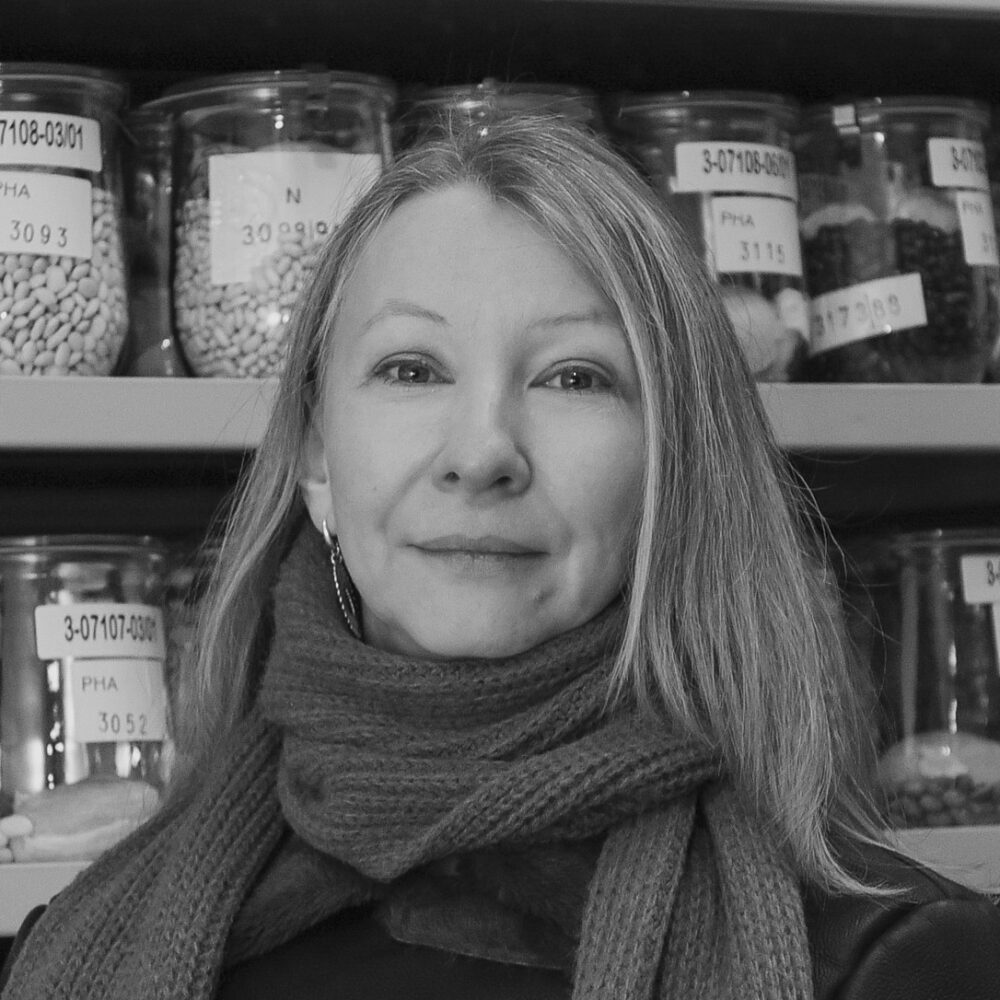
Kerstin Neumann
Dr. Kerstin Neumann, a biologist, has led the “Automated Plant Phenotyping” group at IPK since early 2021. She specializes in developing high-throughput phenotyping (HTP) systems to evaluate cereal collections like wheat and barley for drought and heat tolerance. Her research aims to enhance crop performance under climate change-induced stress. Additionally, she works on plant genetic resources, establishing seed-proof genebank accessions for cereals and legumes. Dr. Neumann leads Work Package 6 in the EU project INCREASE, coordinating its citizen science experiment with Prof. Roberto Papa.
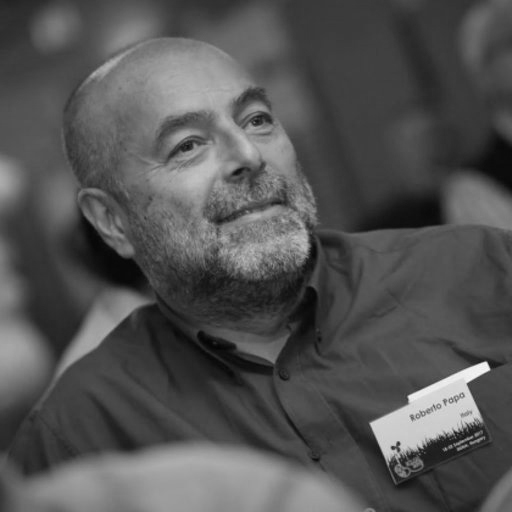
Roberto Papa
Prof. Roberto Papa is a Full Professor and head of the Agricultural Genetics Lab at Università Politecnica delle Marche. He coordinates the EU PGR project “INCREASE.” His research, using genomics and molecular phenotyping, has advanced understanding of the evolutionary history and genetic diversity of legumes (especially Phaseolus species) and cereals (wheat, barley, and maize). He has identified genes and genomic regions controlling key agronomic traits, aiding crop breeding and the management of genetic resources.
